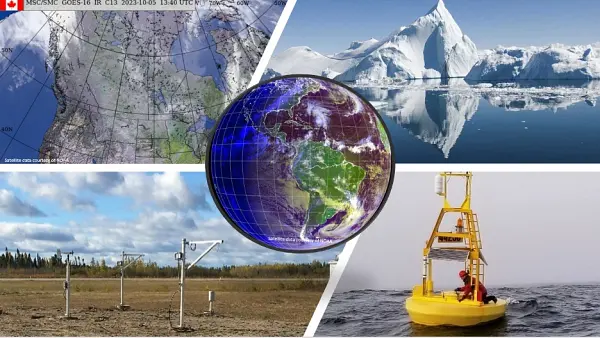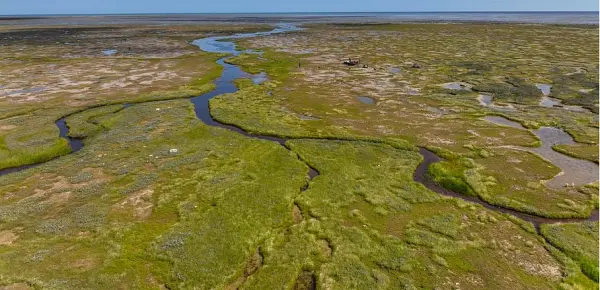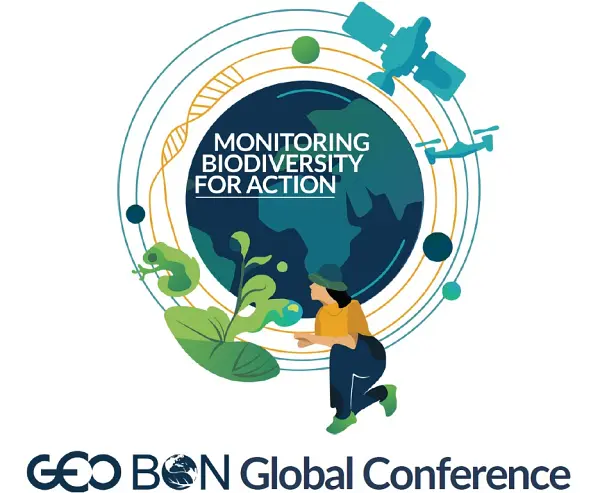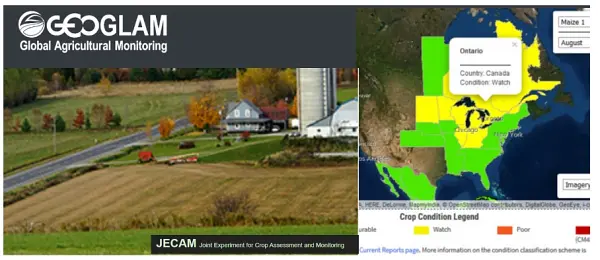Canada
- Home/
- Partners/
- Member Governments/
- Canada


Canada is proud to have released “Resourceful, Resilient, Ready: Canada’s Strategy for Satellite Earth Observation” in January 2022. The strategy outlines an approach that will guide Canada’s actions and investments related to satellite Earth observation data, technology, and international partnerships, as well as advance and promote common goals. This includes advancing new satellite missions and analytical environments to generate solutions for climate change mitigation and adaptation, particularly in Canada’s Arctic.


GEO activities and the EO community have become central in helping Canada create the innovative Census of Environment by providing a fertile ground for the exchange of ideas and solutions required to make the initiative a success.


GEO BON, a network of over 2,300 members across 134 countries worldwide, provides open data and knowledge to support research and conservation action for biodiversity. GEO BON offers a blueprint for a Global Biodiversity Observation System. To do this we are building data portals and online tools to allow a wide range of users to collect and analyze biodiversity data (from Earth observations to in-situ measurements) and produce indicators designed to assess progress and inform decision making for biodiversity conservation. In addition, GEO BON is providing scientific expertise for the post-2020 global biodiversity framework of the UN Convention on Biological Diversity, to be negotiated at COP15 in Montreal (December 2022).


Canada continues to strengthen its national GEO community and its contributions to address key global challenges, such as climate change, biodiversity loss, and pollution. As highlighted in Canada’s Satellite Earth Observation Strategy, we will continue to strive to enhance access to open data for all and foster domestic and international partnerships that recognize the importance of engaging and building capacity among Indigenous communities, women and gender minorities, and other traditionally marginalized peoples, as well as our youth, to ensure the use of EO to benefit our planet is inclusive, sustainable over time, and leveraged to its full potential.


It is necessarily through strong and broad partnerships that we can feed the ever-growing need for satellite data and inform global and local action on Earth. National and international multidisciplinary collaboration is the key to achieving success. The Canadian Space Agency is a key player in the implementation of the Canadian Satellite Earth Observation Strategy by proceeding with missions about Atmospheric sciences and wildfire management. On the international front, the Canadian Space Agency is looking forward to chairing the Committee on Earth Observation Satellites (CEOS) in 2024 and extend the use of EO into new areas and continue the CEOS-GEO collaboration.


GEO BON, is a network of over 2,800 members across 141 countries worldwide, advancing research and collaboration to support a Global Biodiversity Observation System. GEO BON’s global conference in Montreal convened its community Oct 10-13 2023 to exchange knowledge and demonstrate progress in the development of biodiversity observation networks, and open data portals and tools. These advancements facilitate the access of biodiversity data and the development of indicators for biodiversity conservation. GEO BON continues to provide monitoring science in support of the implementation of Kunming-Montreal global biodiversity framework of the UN Convention on Biological Diversity. (COPCBD decision 15/5)


Agriculture and Agri-Food Canada (AAFC) contributes leadership to the GEO Global Agricultural Monitoring initiative (GEOGLAM) and the GEOGLAM Joint Experiment for Crop Assessment and Monitoring (JECAM) network through its work in EO-based mapping and monitoring of agricultural landscapes, particularly with respect to the use of synthetic aperture radar (SAR). AAFC’s international science and technology collaborations span the entire EO research-development-deployment continuum. This work has allowed AAFC to improve its operational EO-based agricultural monitoring systems and, in doing so, deliver valuable public-good data to Canadians. AAFC also continues to be an active member in the GEO Programme Board where it shares its experience and expertise and pursues potential synergies for further collaborative work.

